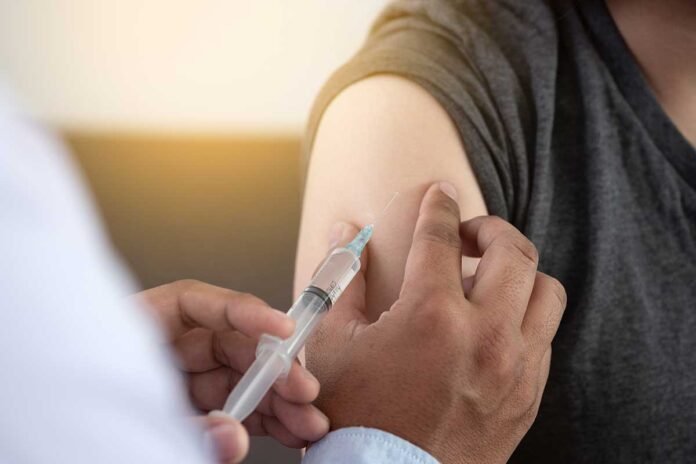LGBTQ leaders and advocates across Pennsylvania are asking state health officials to modify the demographic questions asked by vaccine providers to include questions about sexual orientation and gender identity (SOGI).
Advocates say the data now being collected does not provide a clear picture of the state’s gender and orientation-diverse populations or how COVID-19 vaccines are being distributed among them.
The state Department of Health has previously told the Capital-Star that it relies on Centers for Disease Control and Prevention (CDC) guidance for reporting patient data.
The CDC utilizes Health Level Seven, (HL7) an international and platform-independent set of standards, governing the transfer of data between health care providers, according to the CDC. Under those standards, the “sex” field contains three options – female, male, unknown.
A department spokesperson confirmed that approximately 93 percent of all patient records received by the department are sent using HL7 standards.
“Until these national standards are modified, we are not able to collect data for the sex field beyond these standards,” Health Department spokesperson Maggi Barton told the Capital-Star.
The Department of Health currently collects the following patient data regarding vaccines: first, middle and last names; date of birth; gender (male, female, unknown); race and ethnicity; address (street, city, county, state, zip); primary phone number.
While the department maintains that changes to its data collection standards would have to come at a national level to include SOGI data, Pennsylvania has made changes to its data collection efforts before.
In May, Gov. Tom Wolf announced that contact tracing efforts would be modified to include SOGI questions, the Philadelphia Gay News reported at the time.
Adrian Shanker, executive director of the Bradbury-Sullivan LGBT Community Center in Allentown, has been advocating for better data collection as Pennsylvania’s vaccine rollout efforts continue.
Without the data, Shanker argued that it would be difficult to address community issues such as vaccine hesitancy. He added that the collection of identity and orientation data would give “a fuller picture” of who is receiving the vaccine.
David Griffith, director of programs and outreach for the LGBT Elder Initiative, an LGBT services and resources advocacy group in Philadelphia, agreed with Shanker.
“SOGI [sexual orientation and gender identity] data collection is a huge need in order to better understand the ways that LGBTQ+ people access services, as well as the effectiveness of those services,” Griffith said in an email. “When we don’t get data on sexual orientation and treat gender as only a male/female binary, we miss out on really important data points that inform about LGBTQ+ people’s needs, experiences, and barriers to care. In the case of COVID, having reliable SOGI data would produce important information on how vaccines are (or aren’t) reaching LGBTQ+ communities, which could help shape public health approaches to ensure better equity in vaccine distribution when it comes to the LGBTQ+ community.”
A 2020 report from the Pennsylvania LGBTQ Needs Assessment found that 5 percent of LGBTQ respondents did not have health insurance. Another 20 percent said they were on Medicare, Medicaid or CHIP.
The report also found that nearly 45 percent of respondents did not receive a flu vaccine in the last year, compared to 53.7 percent who said they received a flu shot.
This statistic could be indicative of COVID-19 vaccine rates among LGBTQ individuals, but without data, that can’t be known with certainty, Shanker said.
Shanker called on the department to “urgently” resolve the matter.
While Shanker noted that LGBTQ health equity was a top priority for the department under the leadership of former state Health Secretary Dr. Rachel Levine, he doesn’t believe that will change following her recent departure for the nation’s deputy health secretary seat.
“Part of addressing the pandemic is addressing it through an equity lens,” Shanker said. “It is our hope that under [acting Health Secretary Alison] Beam’s leadership that will continue.”
To fill the void left by the lack of state data, the Bradbury-Sullivan Center has partnered with other LGBT centers and Bryn Mawr College to conduct a survey among LGBTQ individuals to measure vaccine hesitancy.
“We need the data whether the state collects it or not,” Shanker said, noting that the survey is “not a replacement in any way” for the Department of Health changing its questions and collecting the data from vaccine providers.
Cassie Miller is the associate editor of the Pennsylvania Capital-Star, where this article first appeared.

